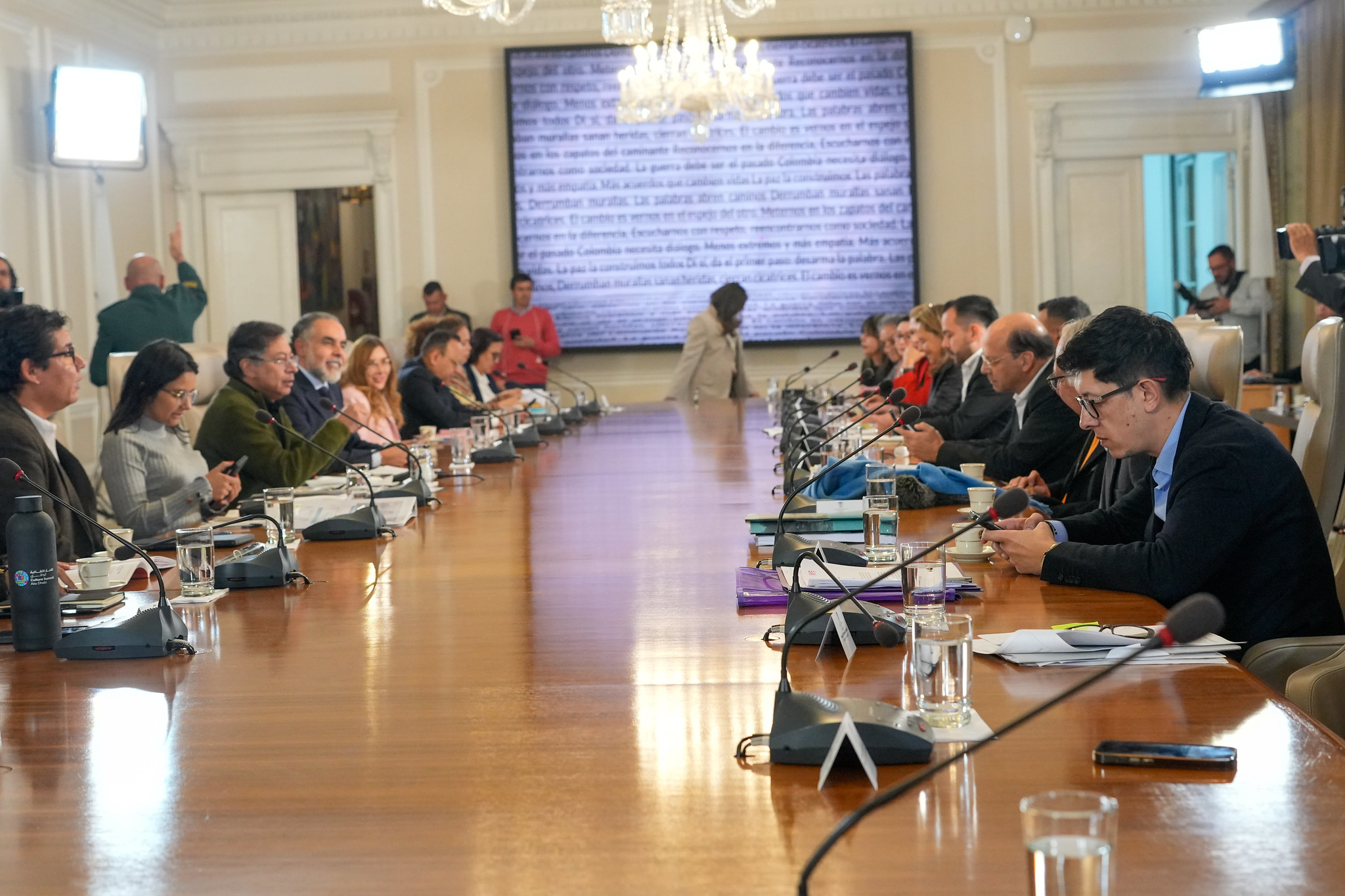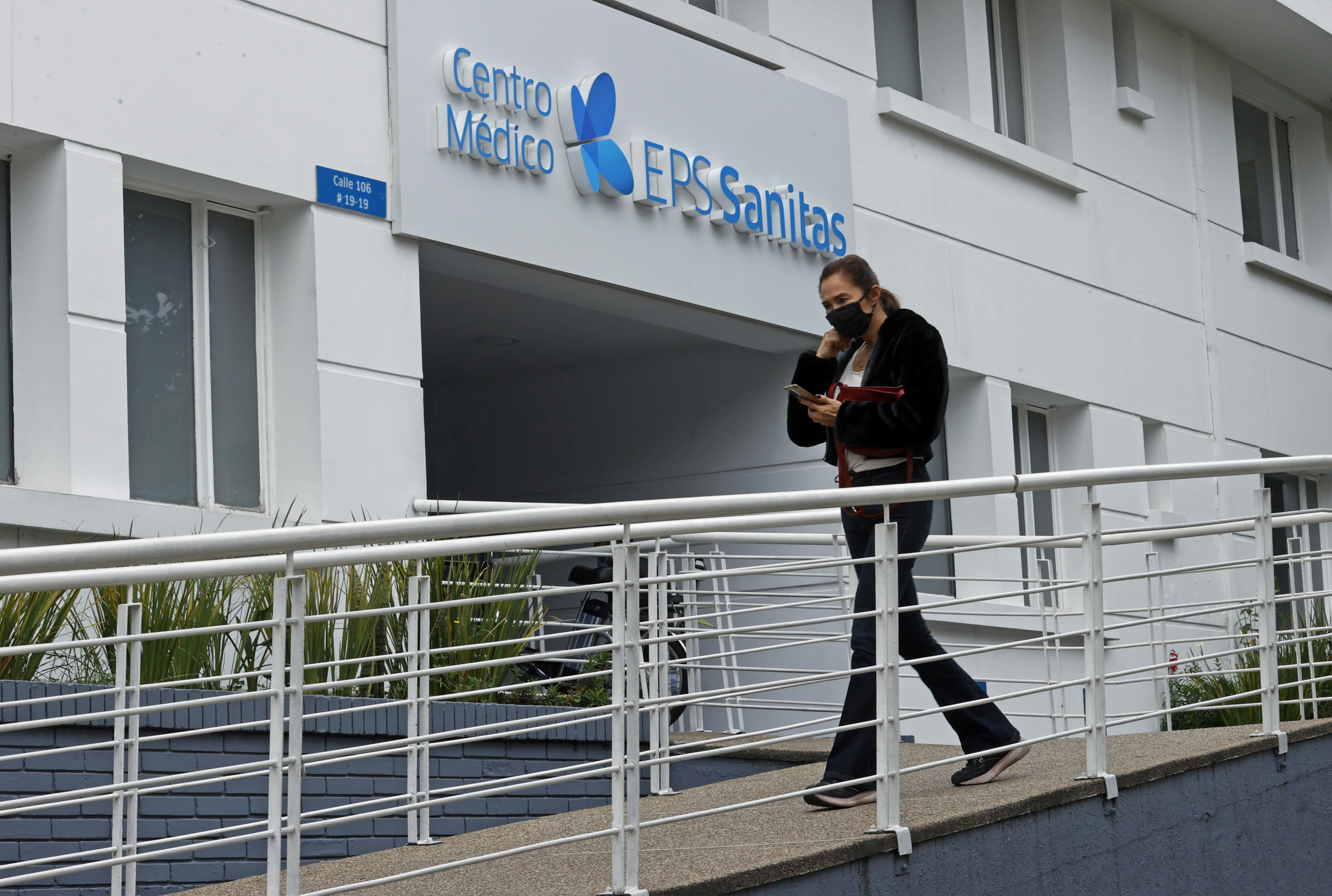Through the Back Door / Analysis by Ricardo Ávila

According to the Spanish dictionary, one of the meanings of the term "draft" is "provisional text susceptible to modification and development." But in today's Colombia, the expression is enough to set off alarm bells in the private sector, at least every time the current government puts its intention to change the rules of the game into bold print.
This has happened in recent weeks due to several preliminary provisions published on the websites of various ministries. The consequences of these measures—if they become official decisions—could impact multiple activities. The list of sectors on alert is extensive and includes transportation, agriculture, health, mining, and energy, among others.
In response to what has happened, both the unions representing those potentially affected and individuals have taken it upon themselves to raise observations and issue warnings. The goal is none other than to prevent the most harmful intentions from becoming reality, something that is not always achieved in the face of an administration that pays little attention to its opponents and ends up imposing its will with a stroke of the pen.
As a result, numerous lawsuits are underway. Others have already been filed and have successfully reversed controversial measures. But the concern is greater now, as there is a perception that the Executive is on the offensive, as time is running out to advance several of the agenda items it is defending.
Given that Congress's path is even more tortuous now, the temptation to issue regulations that appear to be within the purview of the legislative branch is increasing, barely eleven months before handing over power. Since any oversight could prove irreparable, more outside observers are dedicated to reviewing the information being published, in order to avoid surprises.
Undoubtedly, what most helps achieve this goal is the provisions of Law 1437 of 2011, which requires authorities to share specific regulatory projects with the public. The law establishes that the objective is to receive opinions, suggestions, or alternative proposals, which must be publicly recorded. The deadline is at least 15 calendar days, which is short when trying to examine the potential consequences of a regulatory overthrow.

Council of Ministers yesterday, August 27. Photo: Presidency
Despite this, many have managed to react quickly. This is the case in the road infrastructure sector, which earlier this week objected to a draft decree currently in the office of the director of the National Planning Department. The draft would allow the current administration to intervene in future periods , which are the cornerstone of the road concession model, thanks to which Colombia has been able to improve its network of dual and single lanes.
Gustavo Petro's criticism of this scheme, which combines tolls with periodic payments from the national budget as the works are completed, is well known. A few days ago, during a visit to Caldas related to the airport that would replace the one currently serving Manizales, the president spoke of "changing the neoliberal model of highway privatization."
This isn't the first time the president has lashed out against an institutional architecture that has been imitated in Latin America and other latitudes. Within his conceptual framework, the State should be the sole player on the ground. That's why he insists on "trying to invert the pyramid: first, rural roads, then territorial roads, railroads, which are more economical, and then highways, but those that go to the border."
Such a statement drew applause from the audience. After all, it's hard to argue with the dream of the country having a network where the word "trocha" is relegated to oblivion and where there are no tolls for highway use.
But in the real world, there are fiscal constraints, corrupt contracts awarded by hand, projects that are never completed, and the inability of public entities to properly perform their duties. Just look at the extremely low level of achievements of this administration, which promised to promote tertiary education but has very little to show for the goals established in the Development Plan.
Even so, it would appear that the real purpose is to punish the firms and consortiums that relied on the state's word when signing concession contracts, which in turn made it possible to obtain local and international financing. Furthermore, failing to comply with the agreement would benefit a government eager for resources to spend in the short term, as evidenced by the 2026 budget proposal being debated in Congress.
As things stand today, the numbers don't add up. According to the Autonomous Committee of the Fiscal Rule, meeting the deficit target set for next year would require a cut of 45.4 trillion pesos, which runs counter to the ambitions of an executive branch determined to use the public checkbook to gain favorability and bend people's will.
The great irony is that undermining the concession model would jeopardize the public-private partnership project known as El Estanquillo-Popayán, which would be the only major road project the current government would leave behind as a legacy. It would connect the departments of Valle, Cauca, Nariño, and Putumayo with Ecuador and include 14 tunnels and 166 vehicular bridges, in addition to bypasses and dual carriageways.

El Estanquillo–Popayán Project Photo: Ministry of Transportation
However, recruiting bidders for a project that involves an investment of 6.3 trillion pesos will be difficult, as the main guarantee of funding is in question. As Juan Martín Caicedo, president of the Colombian Chamber of Infrastructure, pointed out in a column published in this newspaper: "If the decree is issued, it would pave the way for decisions regarding the country's infrastructure to be made at the whim of moods."
There is also no peace in the agricultural sector, due to a draft from the Ministry of Agriculture regarding the election of members and the formation of governing bodies for the development and price stabilization funds that comprise parafiscal funds. Although at first glance the issue seems distant, it relates to the existing institutional framework and the attempt to intervene in the control of entities that include the National Rice Fund, the Livestock Fund, and the Potato Fund, among many others.
"This situation would lead to an overflow of limitations on the Ministry's regulatory authority," Jorge Bedoya, president of the Colombian Agricultural Society, warned this week in a lengthy letter to the head of the ministry. He added that the decree being prepared "would seriously violate the guarantees arising from the principle of legality and the autonomy of trade associations in light of our Political Charter, the jurisprudence of the Constitutional Court, and the Council of State."
Concerns have been raised on previous occasions, such as with the attempt to revive the Idema (National Land Registry) or after the issuance of the regulation streamlining direct negotiation procedures for the acquisition of rural properties by the National Land Agency. In the latter case, a lawsuit has already been filed and is pending a decision.
And the list goes on. Transporters are concerned about a draft bill that would substantially increase the cost of registering freight vehicles, while the various links in the electricity sector are on high alert due to attempts to forcefully lower rates, while the Air-e debacle on the Atlantic Coast continues.
Nor do miners have it easy due to the blockade of coal sales to Israel, nor do those who must navigate regulations issued by the Ministry of the Environment, such as those that have changed land use, which falls under the jurisdiction of municipalities. In the health sector, a reform has been imposed through the back door and is languishing in Congress, while the Superintendency of Finance lowered the usury rate based on an interpretation , which has affected the microcredit sector.
Everything points to more decisions to come. The outlook is that in the coming months there will be more areas to address as the outgoing administration seeks to leave a mark that reflects its ideological vision.

The agricultural sector accounted for almost half of the quarter's growth. Photo: Guillermo Herrara
Contrary to what some might believe, what's happening isn't the result of disorder but rather a concept that's gaining ground in various latitudes. Donald Trump, for example, has used Executive Orders as his main tool.
What is it about? As former President of the Constitutional Court Alejandro Linares explains, "in essence, it is the use of sub-constitutional norms to introduce structural reforms, without parliamentary deliberation or effective citizen oversight."
He adds that the current practice "constitutes a form of constitutional change that poses serious challenges to the rule of law and the effective guarantee of fundamental rights." According to the jurist, "the displacement of these decisions to the Executive constitutes a form of normative hyper-presidentialism or government by decree, which has been criticized for weakening the separation of powers and limiting democratic oversight."
While there are ways to reverse specific decisions, in many cases the damage may be done. Linares notes that "even if the decrees or regulations in question were subsequently declared unconstitutional or null by the higher courts, the material effects on the guarantee of rights may be irreversible."
Added to this is the potential cost of decisions that end up being challenged. For example, there are 19 international arbitration proceedings pending against the National Infrastructure Agency. This is in addition to the litigation facing the National Agency for the Legal Defense of the State, such as the lawsuit filed by the owners of the Keralty Group following the Constitutional Court ruling that declared the intervention of the Sanitas EPS by the National Health Superintendency illegal.

EPS Sanitas Photo: Mauricio Dueñas / EFE
Given this background, it's no exaggeration to say that the risk of assuming responsibility and acting incorrectly is on the rise. In addition to the monetary penalties that the treasury would have to bear, there is also the negative impact on productive investment attributable to legal uncertainty and instability.
However, the most serious aspect of all is the attempt to change the boundaries that define institutional limits. In this regard, former Senator Humberto de la Calle states that "the discussion here is not so much whether each decree is good or bad." He emphasizes that "what is affected when a decree invades the realm of law, that is, when the government assumes powers of Congress, is the separation of powers, which is not an organizational matter ."
And he concludes: “The separation of powers is a precious jewel crafted by the rule of law to neutralize autocracy. Each branch controls the others because they are separate branches. Power controls power.”
Therefore, we must pay attention to the many draft regulations that call into question the fate of multiple activities. Ultimately, what's at stake is a democratic balance, which, even if it's damaged, is better than a future without checks and balances, like the one the Casa de Nariño seems to favor.
More newseltiempo





